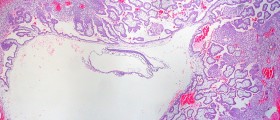
Infertility in women
One of the most frustrating problems that a woman faces is infertility. It is defined as a woman’s inability to stay pregnant after having unprotected intercourse for a year. Infertility can be primary and secondary. Primary infertility occurs when a woman is not able to conceive a pregnancy after at least one year of unsafe sax, while secondary infertility is a woman’s inability to achieve another pregnancy although she has been pregnant previously.
Today many women have this problem. In earlier times, women stayed pregnant while they were very young and healthy. Nowadays, due to the emancipation and career, a woman usually decides to postpone pregnancy for the later years. Therefore, many women conceive a pregnancy in their thirties. Since, a woman older than 35 has small chances to produce a healthy egg, the infertility increases considerably nowadays. One study showed that the fertility in women decreases after they reach 27 years.
Causes of infertility in women
There are many causes for the occurrence of infertility in women. Many physical, as well as emotional or psychological factors are responsible for the occurrence of infertility in women.
However, in the majority of cases, ovulation disorders are mainly responsible for this condition. Furthermore, infertility can be induced by certain medical conditions, such as endometriosis and sexually transmitted diseases. The inflammation or infection of the pelvis, hormonal imbalance and ovarian cysts are also potential risk factors that can lead to the occurrence of infertility in women. When the infertility is correctly diagnosed, it can be successfully treated in many women.
Symptoms of infertility in women
The first symptom of this condition is a woman’s inability to conceive a pregnancy after a year of having unprotected sex. Another symptom of infertility is irregular menstruation. It may happen that a woman either gets menstruation several times a month or to have missed periods. Furthermore, those women who have short or long menstrual cycle, as well as those women who experience heavy and excessive vaginal bleeding, should consult a doctor if they plan to stay pregnant.
The symptoms of infertility in women are also painful periods and fluctuation in bleeding period, as well as considerable change in the blood flow from one month to another. When a fallopian tube is blocked, the egg cannot be fertilized. Therefore, blockage of fallopian tube may represent a sign of infertility in women. Repeated miscarriages caused by genetic conditions or problems in the reproductive system of the woman may also be the symptoms of infertility.

















Your thoughts on this
Loading...